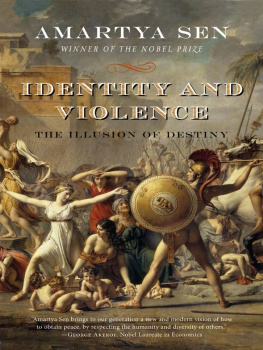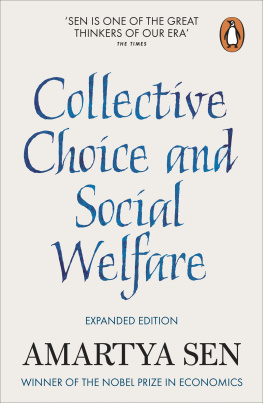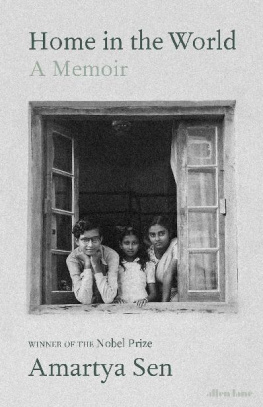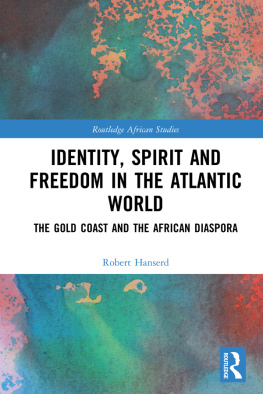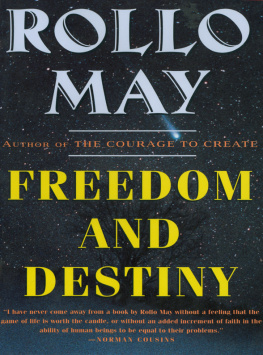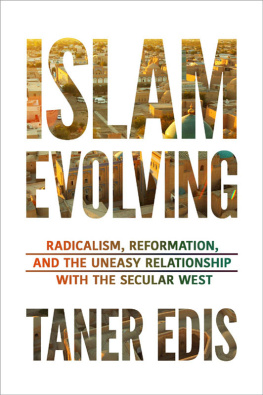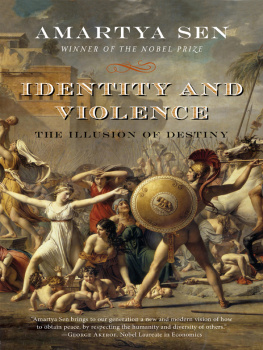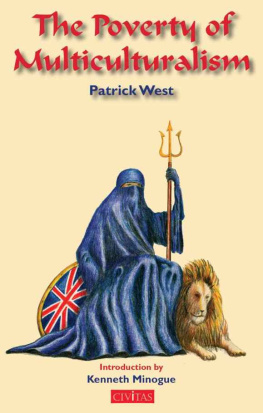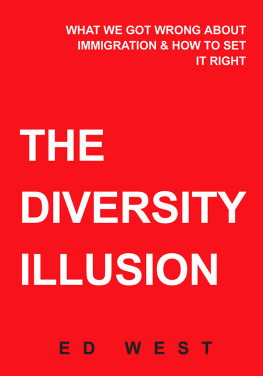Comments on Identity and Violence
Amartya Sen is just the person to write about the politics of identity and its dangers.... Identity and Violence is a moving, powerful essay about the mischief of bad ideas.
Economist
Identity and Violence identifies the positive public action that is needed to make the world a better place.
George Soros
Sen has been perhaps the worlds most distinguished analyst of the welfare of the poor people over the past three decades.... He includes a short, deft and persuasive discussion of economic globalization.... Sen is especially perceptive about the educational folly that has seized the present British government.
Alan Ryan, New York Review of Books
Amartya Sen is uniquely qualified to explore this central conundrum of our time. From 1947, when he witnessed the explosive identity violence of Indias partition, to the identity savagery I witnessed in Bosnia and Rwanda, Palestine and Sudan, and now the war between extreme Islam and the West, our world cries out for solutions. Amartya Sen challenges and sets conventional wisdom on its head as he finds new answers.
Christiane Amanpour, CNN
Amartya Sen provides a lucid and convincing critique of current trends in communitarian and culturalist thinking, underlining for us in a way that only a scholar of his background and learning can of the complexity and multidimensionality of modern identity.
Francis Fukuyama
An eloquent and brilliantly argued indictment of violence perpetrated in the name of what Sen persuasively characterizes as illusory beliefs in unique ethnic, religious, and other identities.
Sissela Bok, author of Mayhem: Violence as Public Entertainment and Common Values
Sen provides critical insight at a critical time. Identity and Violence reveals the complexities by which people define themselves, it shows a great understanding of parts of the world that have been otherwise boxed into monochromatic stereotypes, and from this nuanced discussion arises a more accurate way of discussing identities, violence, and the route to a more peaceful world. This book is a gift to the current discourse on war and peace, and Sens personal narratives and observations continue to endow intellectual theory with a vital dose of humanity.
Zainab Salbi, president of Women for Women International and author of Between Two Worlds
Sens essay makes clear the many inaccuracies and inadequacies of those theories, as well as the dangers of putting them into practice. Sen brilliantly shows that when our public policies and attitudes are guided by one-dimensional simplifications of complex societies, we may unwittingly empower the most extreme and least tolerant members of those societies.
Jeffrey Sachs
The Harvard-based Indian economist Amartya Sen has produced a wonderful, richly personal book-length essay on identity and violence, dismantling the claim that strong identities must be single, exclusive and defended by violence.
Timothy Garton Ash, The Guardian (London)
[Identity and Violence] is... elegantly written, powerful, convincing, humane, and necessary... we need to avoid falling into precisely the trap that Osama Bin Laden has deliberately laid for us: to divide the world into Muslim and non-Muslim.
Robert Kagan
Religion perceived as an absolute identity with no shades of gray is privileged over any and all other human categories and raised as a banner under which not just nations but cultures, equally monolithic, must clash. Drawing on his sophisticated understanding of history and politics as well as economics, Sen reasonably shows such characterizations to be grounded in ignorance of both the past and the present.
Amanda Heller, Boston Globe
Also by Amartya Sen
Choice of Techniques
Collective Choice and Social Welfare
On Economic Inequality
Poverty and Famines
Choice, Welfare, and Measurement
Resources, Values, and Development
Commodities and Capabilities
On Ethics and Economics
Inequality Reexamined
Development as Freedom
Rationality and Freedom
The Argumentative Indian
Issues of Our Time
O urs has been called an information age, but, though information has never been more plentiful, ideas are what shape and reshape our world. Issues of Our Time is a series of books in which some of todays leading thinkers explore ideas that matter in the new millennium. The authorsbeginning with the philosopher Kwame Anthony Appiah, the lawyer and legal scholar Alan Dershowitz, and the Nobel Prizewinning economist Amartya Senhonor clarity without shying away from complexity; these books are both genuinely engaged and genuinely engaging. Each recognizes the importance not just of our values but also of the way we resolve the conflicts among those values. Law, justice, identity, morality, and freedom: concepts such as these are at once abstract and utterly close to home. Our understanding of them helps define who we are and who we hope to be; we are made by what we make of them. These are books, accordingly, that invite the reader to reexamine hand-me-down assumptions and to grapple with powerful trends. Whether you are moved to reason together with these authors, or to argue with them, they are sure to leave your views tested, if not changed. The perspectives of the authors in this series are diverse, the voices are distinctive, the issues are vital.

HENRY LOUIS GATES JR., SERIES EDITOR
W. E. B. DU BOIS PROFESSOR OF THE HUMANITIES
HARVARD UNIVERSITY

Issues of Our Time
Other titles
KWAME ANTHONY APPIAH
Cosmopolitanism: Ethics in a World of Strangers
ALAN M. DERSHOWITZ
Preemption: A Knife That Cuts Both Ways
CHARLES FRIED
Modern Liberty: And the Limits of Government
Forthcoming authors
WILLIAM JULIUS WILSON
LOUIS MENAND
CLAUDE STEELE
AMY GUTMANN
NICK LEMANN
ROLAND FRYER

IDENTITY AND VIOLENCE
THE ILLUSION OF DESTINY

Amartya Sen

To Antara, Nandana, Indrani, and Kabir with the hope of a world less imprisoned by illusion
CONTENTS
S ome years ago when I was returning to England from a short trip abroad (I was then Master of Trinity College in Cambridge), the immigration officer at Heathrow, who scrutinized my Indian passport rather thoroughly, posed a philosophical question of some intricacy. Looking at my home address on the immigration form (Masters Lodge, Trinity College, Cambridge), he asked me whether the Master, whose hospitality I evidently enjoyed, was a close friend of mine. This gave me pause since it was not altogether clear to me whether I could claim to be a friend of myself. On some reflection, I came to the conclusion that the answer must be yes, since I often treat myself in a fairly friendly way, and furthermore, when I say silly things, I can immediately see that with friends like me, I do not need any enemies. Since all this took some time to work out, the immigration officer wanted to know why exactly did I hesitate, and in particular whether there was some irregularity in my being in Britain.
Next page
